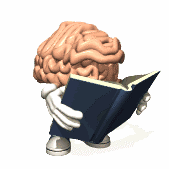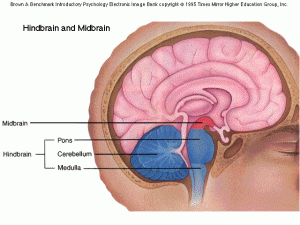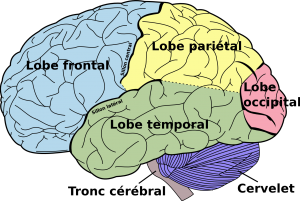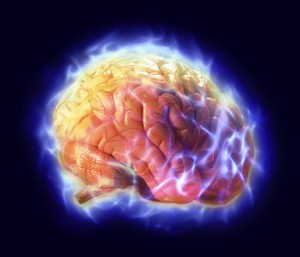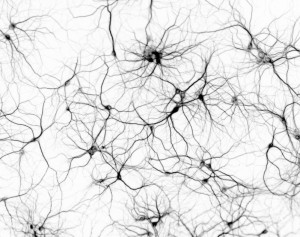 The following is a speech that my friend Steve Radojevic gave to a meeting of the cancer foundation. I placed this on my blog because it is such a powerful account of how a man used his mind to beat a hideous disease. This is not just an incredibly uplifting story, it is also a practical guide to what we can all start doing to take control of our lives. It confirms a lot of what I have been reading regarding the power of the mind. I asked Steve if I could post some parts of his speech on my blog, and he responded something like this:
The following is a speech that my friend Steve Radojevic gave to a meeting of the cancer foundation. I placed this on my blog because it is such a powerful account of how a man used his mind to beat a hideous disease. This is not just an incredibly uplifting story, it is also a practical guide to what we can all start doing to take control of our lives. It confirms a lot of what I have been reading regarding the power of the mind. I asked Steve if I could post some parts of his speech on my blog, and he responded something like this:
‘Wade, you can post the whole thing as it is. If it can help someone out there that would be fantastic’.
I am grateful that my friend passed this on. I will keep it on my blog where I can read it from time to time.It will serve to remind me of the way I should be living, and the kind of man that I want to be. I will borrow and try to live by Steve’s catch cry: ‘An attitude of Gratitude’.
Steve’s speech to an assembly of cancer sufferers:
G’day, I’m Steve Radojevic and I’m here to tell you about my wrestle with prostate cancer.
Just a few words about myself, I’m married to Heather, my gorgeous wife of 25 years, we have two beautiful daughters Jade is 19 and Lauren is 16, I have a wonderful Mum, Tania who is only 67 and she thinks I’m pretty good – well most of the time anyway and my loving sister Anita who has always thought I’m a pain in the arse and still does. Apart from my immediate family I am also blessed with fabulous extended family and friends, I have led a charmed existence.
In May 2005 I had just turned 44, I was feeling unusually tired and looked unusually pale. I went to my GP and I asked him to run some blood tests, he asked me whether he should run one for prostate whilst he was at it and I said yes, I used to get up at night to go to the toilet and when it was cold it seemed like I was going more than all the other guys at work during the day.
A week later I got a call from the doctor asking me to come in and see him, so I did, he told me the news could be very bad, my PSA was 8.1 and for someone my age the upper limit should be 2.5. I was sent off to see a urologist, this led to a biopsy and subsequently finding out 7 of the 10 hits were cancerous.
Over the following weeks I rang the anti cancer council to find out exactly what my chances of survival were. They told me statistically I had no chance of beating the cancer, under the age of 50 cancer wins virtually every time.
In my head was, I am going to die, also that I would go through the process of whatever was recommended and that at least no one could say that I gave up. Also in my head I have this thing that I do that whenever something happens I always think that things could be worse and keep things in perspective, believe me it makes a huge difference, we can all do it, we can train our brain to think the way we want it to.
After meeting with the Urologist and then a number of trips to Peter Macullum it was decided that a radical would be the best bet. The operation was unsuccessful. So five months later I was sent in for 7 weeks of radiation. The radiologist hit me with the cold hard facts before we started. He essentially said, “this is your last chance”.
In June 2006 I went to World Cup in Germany, Australia had qualified and just 2 months after completing radiation I went on a 5 week end of season or end of life trip, or so I thought at the time.
My Father in law is an avid ABC watcher and has a British background, when I first came on the scene courting his daughter he used to correct my English on many occasions. In any case I get a phone call the day I land in Germany and it is the ABC executive producer who tells me that I am down to the last 5 to be ABC’s roving reporter at the World Cup, I say no thanks, because I don’t want the hassle of being rung pre or after games, I tell him about how I’m over there in a motor home with 3 long term mates of mine, I coached Joey Didulica who I predicated would be huge talent when he was a skinny 17 year old, I was ridiculed for my call. Joey was in the Croatian squad playing at the World Cup, he is now a multi millionaire, caught up with Josip Skoko just weeks before at a bucks night and the footy at the MCG, whilst I’m telling him this I’m trying to get away from the speakers on this big boat we are on, a wine cruise we were on the top deck sitting out in the sun and out of the speakers we would be listening to information like” the castle we are approaching on the left hand side was built 1574 by the von trap family, whatever, I couldn’t hear and my friend took off his t-shirt and covered the speaker, this group of old ladies were laughing so much, they then pointed at the other speaker, so my friend Rod pretended he was taking his pants off, more hysterical laughter. The ABC producer says to me you have the job, I say I don’t want the job, in the end I agree on the proviso if I answer the phone great if not then no comebacks. I end up doing a couple of gigs with BBC World Sport as well, it was pretty bizarre really. A classic before the Brazil game was in Munich where the interview with BBC world sport the voice came across asking Steve last night “the Australians in the streets of Munich were extremely confident against Brazil the shortest priced favourites in the history of the World Cup – what do you put this confidence down to? I said it was all the beer the Aussies drank the night before, we are not feeling so confident now that the beer had worn off.
The point of this story is I get great pleasure in life in doing what people say you can’t do, Joey made it to the World Cup, I was working as a foreign correspondent for the ABC, my next aim was concentrate on getting an untraceable psa.
8 Months after I finished the radiation I was told that was it, that the radiation was unsuccessful. I spoke with my GP friend about timing for making DVD’s for my daughters, 21st birthdays, weddings etc he said it was a good idea to get them done, you never know how quickly you can go, given that the younger you are when diagnosed with prostate cancer the more aggressive the cancer is. I was told hormone therapy may help – come back in 6 months to see where your score has got to. That was 4 years ago.
Five years before I found out I had cancer my dad was diagnosed with cancer and he found out he was going to die from it, he was devastated and I remember telling him to be grateful for all the wonderful things that had happened in his life and how lucky his life had been compared to so many others, he said it was easy for me because I wasn’t the one dying, well now it was my turn to walk the talk. I truly feel I have had had a wonderful life and if it was shorter than some others so be it, getting old has it downside as well. I often joked that I was getting bored with life, time to move on.
Up to this stage, My GP, Urologist, Radiologist and Oncologist all dismissed my ideas of changing my diet or any form of complementary healing. In fact on Thursday I was still arguing with my GP about this, seriously he is a GP he has never investigated the number of success stories for all sorts of cancers through the application of alternative therapies that are commonly used. In Europe, most cancer specialists recommend a visit to a naturopath, meditation and work on positive emotions as a minimum to boost your immune system to help fight cancer.
When I was first diagnosed Mark Kennedy a friend and local GP encouraged me to explore other options to complement conventional medical practices, he is a man I have lot of respect for and now I had some added motivation to give integrative or alternative healing concepts a serious go. Lets face it my health was charting south at a rapid rate so if I didn’t change something I knew where I was heading,
I was also hounded by family and friends to try everything so I thought why not and decided to give it my best shot to stay alive as long as possible. I read a book called “how to fight prostate cancer and win”. I also read another book written by Ian Gawler who had beaten cancer by using his mind and changing his diet. I was introduced to meditation, reiki, naturopaths and array of alternative healing methods that I would have laughed at previously.
A lot of the books I read were consistent In that their evidence substantiated that clear, positive, hopeful, optimistic thoughts, even when there is no basis for these thoughts are a powerful medicine in healing. What we feel, think, say and do has a profound influence on our mental, physical and spiritual health.
Everyone knows about the placebo effect, a study at the University of Tennessee for Health Science ran a study that gave people suffering from chronic pain a pill that would make them feel better. It was in fact just a sugar pill. 44% felt better, their thoughts made them feel better.
I made up my mind I was going to keep enjoying and concentrating on living life . An attitude of gratitude, was my catch cry, whilst I’m here I want to appreciate the wonderful people and opportunities surrounding me. It also meant taking responsibility and ownership for my own recovery and have a fighting spirit.
It was also at this time that I asked God for help, I asked him to help me stay around for awhile to help bring up my family. I asked for all the prayers and kind thoughts that were out there for me to give me strength to let me to continue to help others and be the sort of person I want to be. I have always said a prayer before falling asleep my whole life, 99% it was a prayer of thanks for the wonderful people in my life or I would pray for other people who are sick or have died. I felt that I was so lucky that I shouldn’t ask God for anything, it would be greedy, but now I was asking.
Well go figure, the next time I had to go back to the urologist – six months later, my psa was untraceable. He said he couldn’t explain it. I said that there was merit in all the things I had done, he asked me to explain what I had been doing and now he actually can see merit in some of the things I do. It is 4 years down the track and my psa is still untraceable. I have the attitude if the cancer comes back and statistically it should, then at least I have had an extension on life already.
I’d like to share with you the things I did/ changed that may have helped me achieve a turnaround in results.
Naturopath: They aim to identify how your enzymes are performing. They will make you do a Liver function test that determines which nutrients are lacking in your body then they recommend vitamins and specific food to get you back into a healthy balance again. Make sure that you get your immune system right! The aim is to eliminate toxins from your body, then nourish it with food that is natural and healthy.
Tomato paste: In the little leggo tubs is full of antioxidants. Prostate cancer is less prevalent in countries that eat a diet rich in tomato paste. The paste is much better for you than real tomatoes, because it is a concentrate. The secret ingredient is called lycopene.
Pumpkin seeds: A small handful a day are excellent for your plumbing health.
Blueberries: Full of anti oxidants.
Filtered water: Nikken PiMag Water System
Healthy Stuff: My top recommendations that keep coming up through all the success stories are as follows:
1. Selenium- mineral found in soils in countries where there is the lowest rates of cancer, Australian soil has little or no selenium, so this is well worth taking for minimising or keeping cancer away. Brazil nuts are a great source of selenium if you want to get your nutrients through food. Just have 3 or 4 brazil nuts a day.
2. Zinc, helps for healing. Also available through eating oysters, and pumpkin seeds.
3. Coenzyme Q10 – tablet – spark plug nutrient for regenerating healthy cells.
4. Vitamin D3 for vitamin D deficiency. There is very strong evidence suggesting there is a relationship between people with prostate cancer and vitamin D deficiency. During winter I take a tablet a day.
China White tea: strongest tea for fighting cancer from Leaf Tea shop 124 Ryrie Street – Geelong. The benefits of antioxidants in supporting our immune system are real.
Cholesterol – I read that there may be evidence that higher cholesterol is a factor for PC, I have made an effort to lower mine.
Things to cut out: Artificial sweeteners – carcinogenic, Suger,Red meat as much as possible, alcohol, dairy.
Food and nutrition does make a difference, no question. A study found that the incidence of PC in Japanese men skyrocketed after moving to America due to a change in diet. %of of Pc in Japan – very low, of Japanese people in USA – significantly more.
Alright now I’m going to touch on an unusual area and I think most people find this a little personally challenging and confronting. It is all a little jumbled but I’m sure you will get the gist of what I’m trying to say. Psycho immunology is going to get bigger over time it proposes that psychological well being is very important, your well being is tied into you having positive emotions.
Illness may come from unresolved issues, guilt, anger or fear of the future, we need to get our mind in a good place. Learn to forgive as quickly as possible. No question unreleased or stuck emotions can create physical blockages that manifest themselves through illness., Stress causes restriction to blood flow and energy and this will only feed cancer. I believe that stress, emotional blockages along with an inadequate diet were major factors in me getting cancer.
Do not underestimate the relationship between the mind and the body. The body behaves in the way the mind thinks so it is important to think healthy,so say to yourself “today my health is getting better”, “Today I am doing everything I can to make myself healthy again”, “today every cell in my body responds positively to my positive mental images”. Doing this daily for a minute or two, this helps to align your brain into thinking yourself healthy. No question, Positive thinking reduces stress and aids our immune system.
I needed professional help with this – story with lie detector test, changed my thinking patterns.
Visualisation: Visualise yourself being healthy. I use a common technique of imagining a white healing light coming into my body with my breath and clearing away the mutant cancer cells leaving behind a healthy body. Again remember this is important “What we feel, think, say and do has a profound influence on our mental, physical and spiritual health”.
Meditation is very good way to slow the mind down, it takes practice, you will always feel better after a session.
Reiki: Hands on healing. Very alternative, I have found it be very effective and relaxing, The power of touch is not to be underestimated. Now being used in hospitals.
Sense of purpose – reason for living – critical in healing, albeit our families, a trip to the next world cup – maybe we organise a bus, whatever it is.
Read a Book: How to fight prostate cancer and win by Ron Gellatley – Best seller
I love the following quote:
“Our lives are not determined by what happens to us, but by how we react to what happens. Not by what life brings to us but by the attitude we bring to life”
Here is a question for you, Do you really want to fight prostate cancer? think about it quickly.
I have changed, I eat a lot healthier- I have selenium, zinc, coenzyme Q10,fish oil, vitamin E, White tea, pumpkin seeds most days, my diet is not perfect, although I have cut back on red meat and eliminated artificial sweeteners, I still have a drink, not as much as I used to. I know my immune system is supported by the nutritional food I put into my body to nourish it, I still stress, nowhere near as much as I did before, I meditate from time to time, I use healthy visualisation, I have reiki done on me, been to a homeopath, been to a naturopath, worked on my cholesterol, I have resolved issues that have been with me since I was I was kid, feelings of anger and resentment that were festering way, they are now occasional fleeting thoughts that don’t take up brain space that is in short supply. I feel great most of the time and when I don’t it is because I’m not getting enough rest or I am eating rubbish, I am back on track very quickly most of the time. I am also able to fool around again without the use of ……….. pretty miraculous really given the double whammy of the radical and radiation.
I haven’t done everything that is out there, oxygen therapy, enemas, dental purification – see bad teeth, I haven’t gone for a super strict diet. I have made changes, there is nothing really too sophisticated about what I do and I urge you to give it a go, I’m sure it has helped me in getting the great results I have been getting. Ask yourself have you made changes? Have you taken ownership of this battle? Are you using some form of complementary medicine to support what is being recommended to you by your GP / Urologist / Radiologist / Oncologist? – In my opinion you should be.
I also think it is important to be mindful not get absorbed by cancer, I don’t want to be known as Steve Radojevic, the guy with cancer, it is important that we don’t bore people and that we are mindful of the feelings of others so we don’t lose friends because we obsess about our health. For me I’d like my friends to see me and think great we are in the spring carnival – a day out at the races with Steve, reviewing the weekends sports results together, bagging some wine I recommended, reminding of the time I did some thing silly, whatever it is as long as it is inclusive of my family and friends and exclusive of talking about my health, because it is boring compared to all the interesting things there is to talk about.
Just as an aside I want to go on record as saying that getting Cancer isn’t the worst thing that could happen to you. We could have died from a heart attack and never had the chance to be told how much we are loved or to tell those we love how we feel about them. The sunsets are more beautiful. Friends are kinder, it has also given me the opportunity for tremendous personal growth, I have become better at saying no and focusing my time on what is important to me. It could all change for me at my next blood test, you know what if it does, then I think to myself, It is not the length of life but the depth of life that matters, I’ve had wonderful experiences along the way that are worth 300 years of living and I intend to have a few more before I go.
I have already made up my mind, I am never going to complain. I try to cultivate positive thinking in all aspects of my life not just to enhance the quality of my life but also the lives of others – so we can have a positive effect on every receptionist, nurse, doctor, patient, carer, person we come into contact with and hopefully that will give them strength to pass it on in treating others with kindness and compassion.
I’d like to thank you for giving me the opportunity to share my story, I extend best wishes to you and your families for today and the future. Are there any questions?

